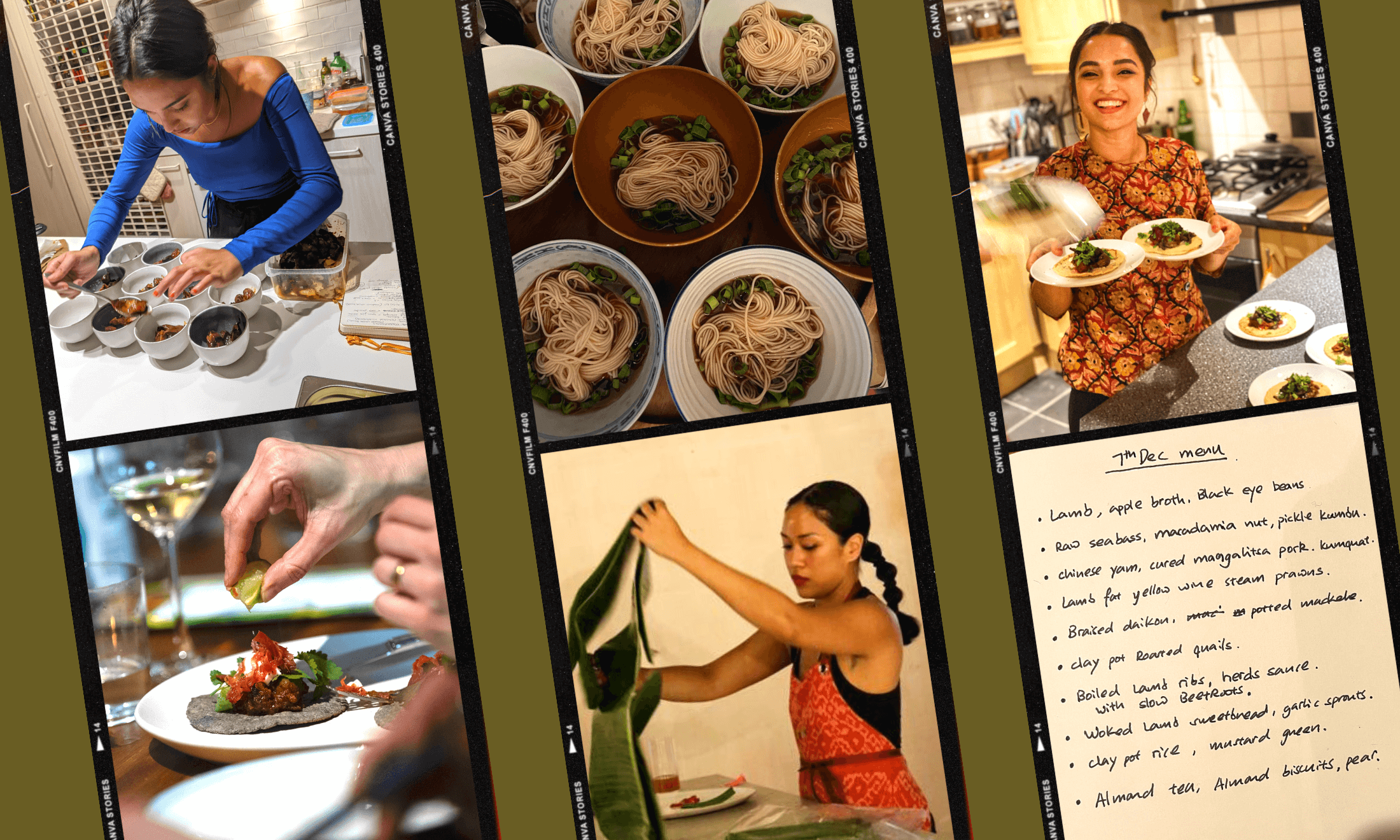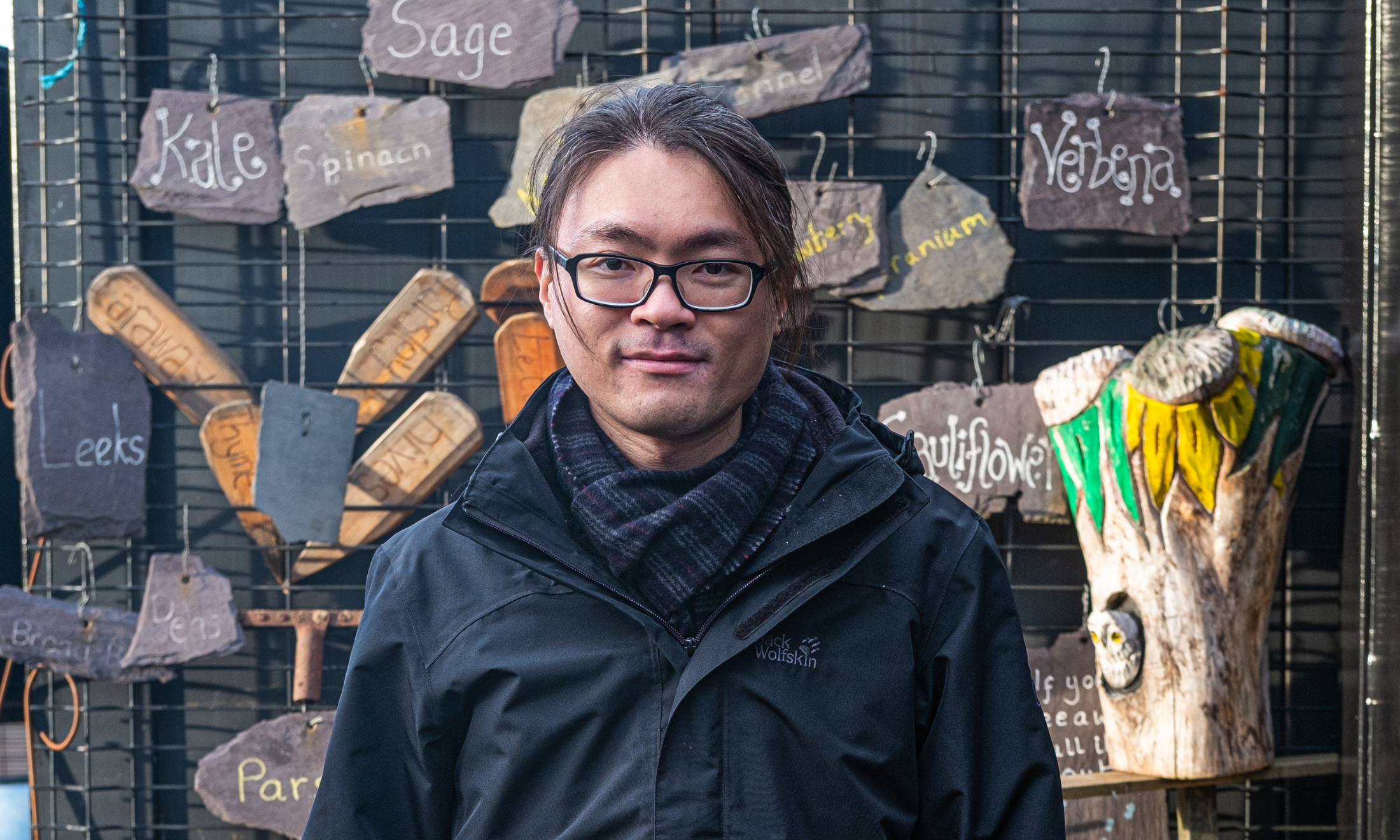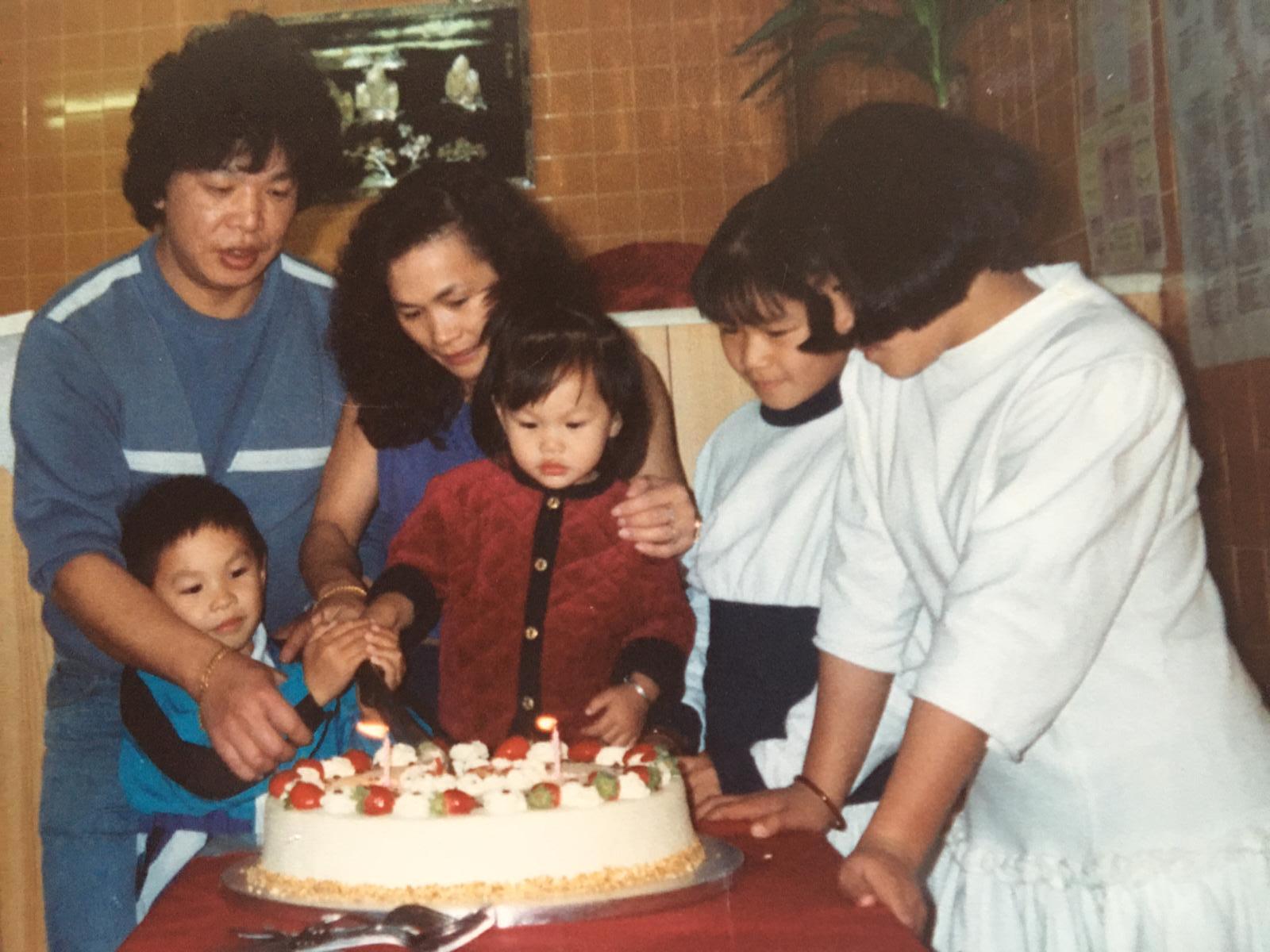
How my Chinese meal times encouraged a positive relationship with food
This Chinese New Year, Vikki Chan reflects on the way a Chinese upbringing shaped her relationship with food.
Vikki Chan and Editors
12 Feb 2021
I’m a sucker for symbolism and metaphors so it’s no real surprise that I adore Chinese New Year. Every year, we always eat a whole fish, as it symbolises abundance for the year ahead, and sweet rice balls which represent reunion and togetherness. Food is central to our celebrations with each dish holding meaning, symbolising good health, fortune and prosperity, making eating all the dumplings and noodles that much more enjoyable knowing that it could help increase my bank balance and lifespan.
The concept of eating all the foods isn’t saved just for Chinese New Year though. It’s a consistent message I had growing up, which my mum (who migrated to the UK as a child) unknowingly instilled in us through our traditional Chinese dinners.
For most, having ‘a Chinese’ either conjures up thoughts of being gluttonous with a greasy, brown and beige dinner, or, being on the other end of the spectrum, having a very bland-and-everything-steamed ‘clean’ meal. The reality is that this good vs. bad food argument never existed in my Chinese family mealtimes. I’m very fortunate to have been brought up in an environment where foods had no hierarchy, mainly because we wanted it all. This may sound more like greed than a practice of self-restraint but actually, it’s neither.
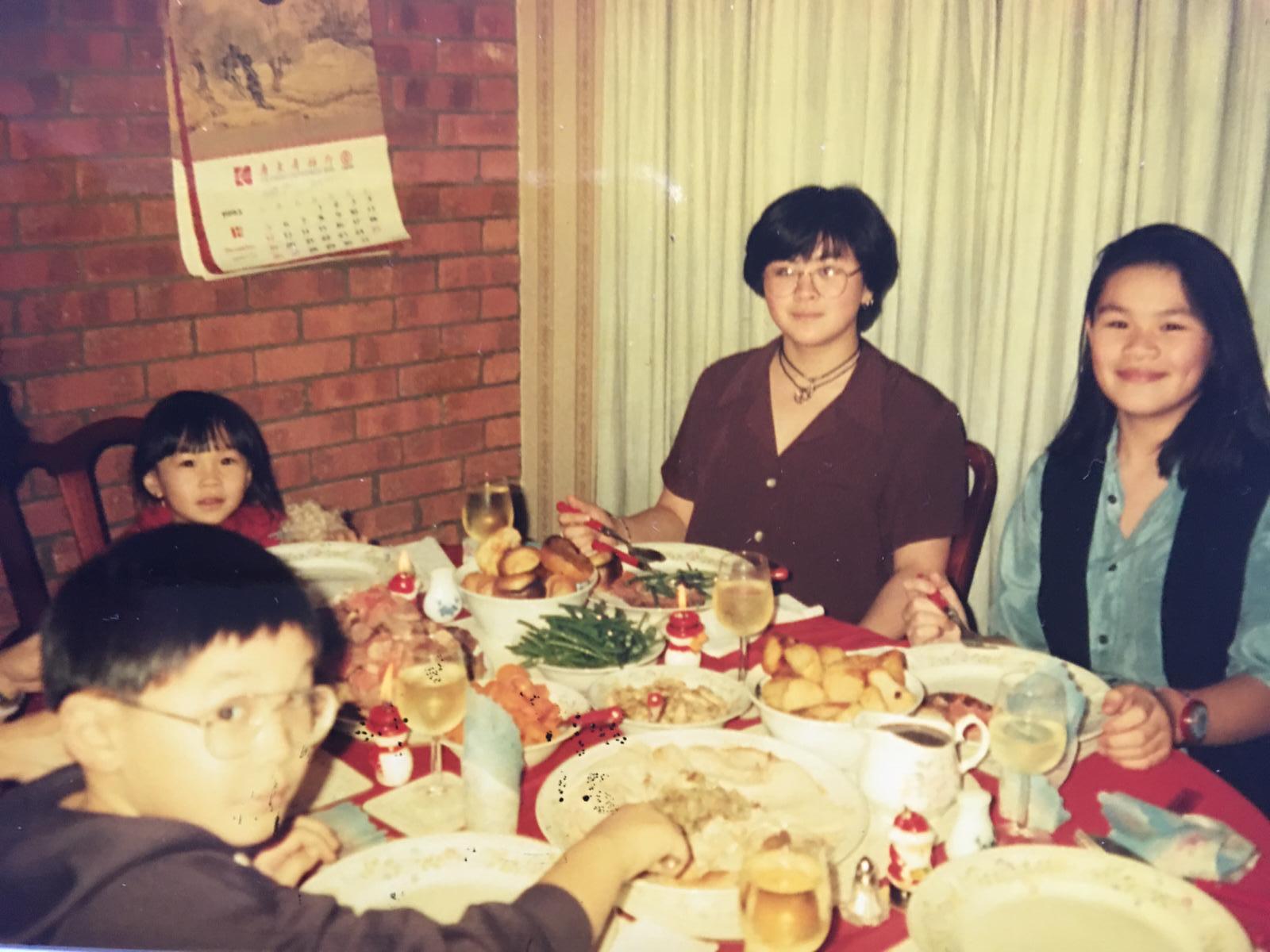
At their core, Chinese meals are packed with variety: opposing textures, complimentary flavours and palettes of bold, contrasting colours. My taste buds and body organically crave the changes in delicious mouthfuls knowing that each one will make the last (and next) even better.
Since I was two years old, I’ve had a place at the table to explore all of this on my own terms. As is the culture, everyone has their own setting (a small rice bowl, a side plate and chopsticks) while all the dishes are in the middle for us to help ourselves to. Growing up, the spread was often the same – a protein or two, vegetables and rice – but the menu itself changed nightly. It was up to us to decide what went into our own bowl, how much and how often we wanted to go back for more.
“I’m very fortunate to have been brought up in an environment where foods had no hierarchy, mainly because we wanted it all”
My mum’s garlicky, stir-fried umami pak choi, with its creamy green stem and soft crunch, was welcome after a mouthful of pillowy rice soaked with unctuously spicy and slightly sharp pork mince and aubergine. Balance and contrast are key to a really delicious and satisfying meal and you want to keep mixing up the order of your bites until you’re satiated. Well, I do anyway.
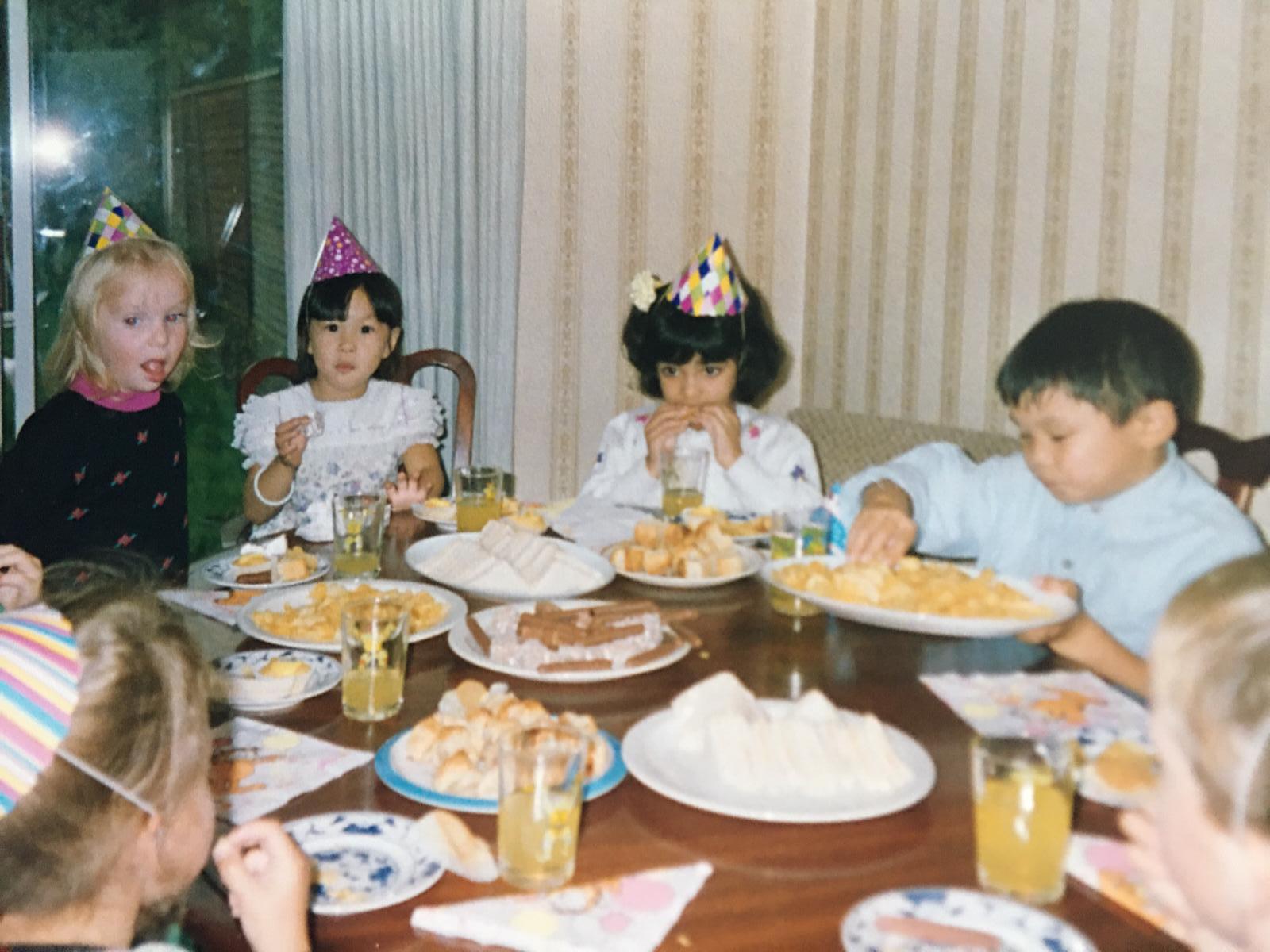
Not kept for just Chinese New Year, food is also a metaphor for care and love. Eating together each night was the time my mum literally showed her love and we reciprocated with gratitude by finishing every last bite. For this reason, it’s considered disrespectful to leave even a grain of rice, which is where the small bowls come in handy. We eat in small quantities only adding a few morsels into our bowl at a time naturally encouraging us to eat slowly, aiding digestion and increasing bodily awareness and fullness.
“The groundwork set by our Chinese meal culture gave me autonomy over my eating habits from a young age; I recognised, was modelled and experienced first-hand that eating is emotional and like emotions, changeable”
This said, of course there were times growing up when my judgement was simply way off. I overate sometimes to the point where the final grain of rice was gleefully shovelled into my mouth but met with regret from the waistband discomfort very soon after. Other times I didn’t eat quite enough at dinner, needing a snack later on: always some form of an orange (considered good luck and a palette cleanser, every Chinese household will always have some lurking around, new year or not.) And as any child does, I would change my mind on a particular food, dish or even sauce, week to week.
Food and meals embodying love meant that my mum never judged me for my eating-related actions at the dinner table; a telling off was still on the cards for unruly behaviour though. She reassured me when I ate too much or too little, simply acknowledged the times I ate more of the deep-fried goodies over greens and left me to it on the occasions I’d be feeling full and satisfied. It was all just fine.
The groundwork set by our Chinese meal culture gave me autonomy over my eating habits from a young age; I recognised, was modelled and experienced first-hand that eating is emotional and like emotions, changeable. I can be filled with joy and pleasure, need comfort to help low energy or mood and sometimes, will eat just for eating’s sake. How that translates today is that all foods are on a level playing field for me: nothing is demonised or glorified, they just are. This explorative, intuitive lifestyle means my diet is inevitably varied and food satisfaction comes more quickly and far more often, whether that is from enjoying just one crispy prawn wonton or clearing up the whole plate. You know, for good fortune.


